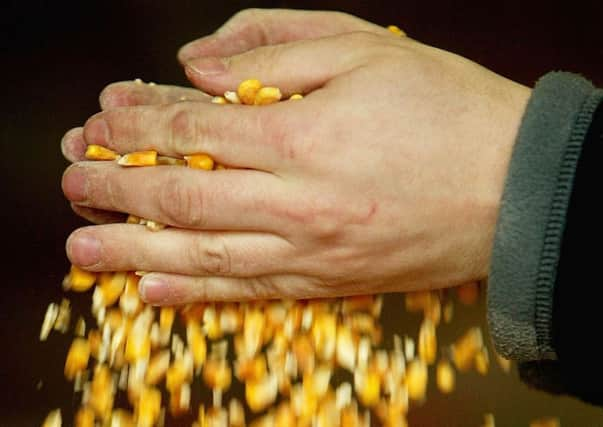Scott Macnab: SNP must be open to science in GM food debate


This places the position of the Scottish Government in the spotlight again. Ministers here faced criticism 15 months ago when an outright ban was placed on the use of GM crops across Scotland, without having sought any scientific advice. The then rural affairs secretary Richard Lochhead defended such an approach, claiming it was about protecting the “reputation” of Scottish produce. This is despite the absence of any evidence of health risks associated with GM crops in the decades since they first emerged – including widespread use in the US food chain.
That Mr Lochhead’s decision was taken while the post of chief scientific adviser in Scotland was vacant – it lay unfilled for 18 months in total – prompted claims of an “anti-science” attitude. But the SNP government is by no means alone in its “hands-off” approach to GM.
Advertisement
Hide AdAdvertisement
Hide AdA similar moratorium has previously existed across the European Union, although licences to grow a GM crop commercially were granted for an insect-resistant strain of maize in small areas of Spain and Portugal, albeit 15 years ago. The contrast with the US is stark, where GM foods have been a staple on supermarket shelves for some time. Everyday ingredients such as soy and maize are likely to contain GM ingredients, meaning products including sweetened drinks, cereals and many snacks are likely to contain these materials. Crucially, there is still no evidence of links between eating genetically modified products and ill-health to date – no evidence that anyone has ever got sick from eating any of those Frankenfoods (though a theoretical risk of allergies remains).
Perhaps this is why supporters of the proposed English trial of higher-yield GM crops feel they are in a position to test the water of public opinion once again. Professor Christine Raines of Essex University, who heads up the project, said this week that public attitudes are shifting. When GM started out in the 1980s it was a new technology, so perhaps the concerns and even fears were justified. But not any more. A generation is emerging, she claims, which has been educated on the principles of genetic manipulation and are more knowledgeable about the technology and even its limitations. The scientific community also has 30 years of evidence to call on which clearly indicates GM technology is no more dangerous than any other kind of technology which is used on crops.
The more guarded approach on the part of the EU towards GM has even left many in the UK scientific community believing that Brexit could provide a great opportunity for the industry south of the Border, if the government at Westminster is prepared to get behind the technology. That may even be good news for Scottish researchers. For although the technology is banned from being grown north of the Border, GM research isn’t outlawed in laboratories. In other words, it’s alright for other countries to soil their fields with damaging GM crops developed in Scottish labs, but they can’t be planted here in Scotland. It’s a confusing situation, but shows how far ministers are prepared to bend to keep the country’s vital life sciences industry and its research base onside.
The Scottish Conservatives have already been agitating for a change in approach from the SNP government on the issue of GM crops, lambasting the “anti-science” approach of ministers. The calls have been led by the party’s new rural affairs spokesman Peter Chapman, a former head of the National Farmers Union in Scotland (NFUS).
And far from damaging the reputation of Scotland’s natural produce, GM crops could reduce the use of pesticides on farms across the country, benefiting the environment, according to Mr Chapman – himself a farmer.
But even if the trials are approved south of the Border, it is unlikely there will be a shift in approach from Scottish ministers until hard evidence of a change in public attitudes emerges.
Professor Dame Anne Glover, the Scottish biologist and former chief scientist to the EU, told the farming industry last year that it had to be far more proactive in setting out the benefits on the ground for them and the public, not just multi-national firms.
She said: “You have to do to get people on board with you, because if citizens aren’t on board I don’t think government is going to be very interested.”
Advertisement
Hide AdAdvertisement
Hide AdPerhaps the bigger concern with the Scottish Government is that is too quick to respond to campaign groups rather than broader public opinion. The SNP’s fracking ban in Scotland has caused much consternation among the industry which relies on fracked gas imported from the US to power Scotland’s biggest industrial site at Grangemouth. It comes in a week when Friends of the Earth was scolded by advertising watchdogs for spreading scare stories that fracking could cause cancer and contaminate waters supplies.
There exists a natural tendency to think that smaller campaign groups like this must be on the side of the angels especially if they are up against big corporations. But this must not come at the cost of an honest debate on the facts and science of any given issue. Surely its time for such a debate on GM in Scotland.